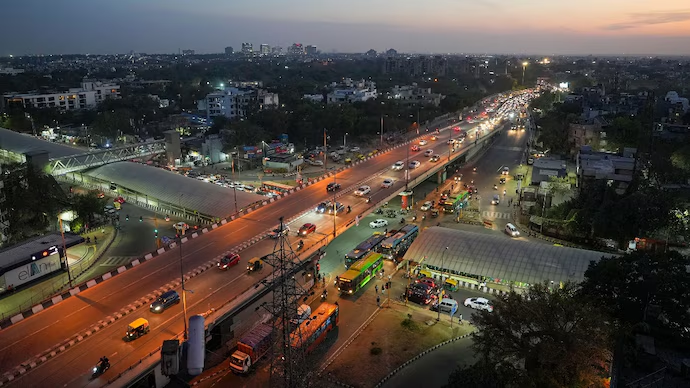In a significant victory for commuters, the Supreme Court recently ruled that the Delhi-Noida-Direct (DND) flyway will remain toll-free, dismissing a petition filed by a private company challenging an earlier decision by the Allahabad High Court. The private company, Noida Toll Bridge Company Limited (NTBCL), had sought to continue collecting tolls, arguing that they had not fully recovered the construction and operational costs for the 8-lane flyway. However, the apex court upheld the 2016 order of the Allahabad High Court, which had concluded that NTBCL had already recouped its investment, including returns, interest, and construction costs, through toll collection over the years.
The bench, consisting of Justices Surya Kant and Ujjal Bhuyan, ruled that the toll collection agreement was invalid and unjustified. The Court further criticised the Noida Authority for delegating the toll collection task to NTBCL, noting that the arrangement had led to “unjust enrichment” and was “unjust and unfair” to commuters who had already borne the financial burden for an extended period. The Court’s ruling brings an end to a protracted legal battle over the toll collection on the 9.2 km long DND flyway, which serves as a critical artery connecting Noida with south Delhi, and accommodates about 1 lakh vehicles daily.
The controversy dates back to 2016 when the Allahabad High Court, acting on a Public Interest Litigation (PIL) filed by the Federation of Noida Residents’ Welfare Association, declared that NTBCL had collected sufficient toll over the past 15 years and should cease its toll collection activities. With the Supreme Court’s affirmation, the DND flyway will now remain toll-free, offering significant relief to commuters who have long been frustrated with the toll charges.
From a civic standpoint, this ruling highlights the importance of transparency and accountability in urban infrastructure contracts. The arrangement that allowed NTBCL to continue collecting tolls long after recovering its costs raises questions about the fairness of such agreements, particularly when they burden public commuters. Furthermore, the decision underscores the pressing need for regulatory frameworks that ensure public welfare is prioritised over commercial interests in critical infrastructure projects.
On a sustainability note, the removal of the toll could lead to a reduction in fuel consumption, as fewer vehicles may opt for alternate routes due to the toll burden. A toll-free flyway also encourages increased use of the infrastructure, potentially reducing traffic congestion and emissions in the long term. As cities like Noida and Delhi continue to grapple with the challenges of urbanisation and environmental sustainability, decisions such as this one reflect the growing importance of striking a balance between infrastructure development, environmental concerns, and the well-being of residents.
In conclusion, the Supreme Court’s decision is a significant moment in India’s evolving landscape of urban governance, public welfare, and sustainability. As the country moves towards more equitable infrastructure policies, this case serves as a reminder of the need for governance models that balance commercial interests with the rights and needs of the people.



